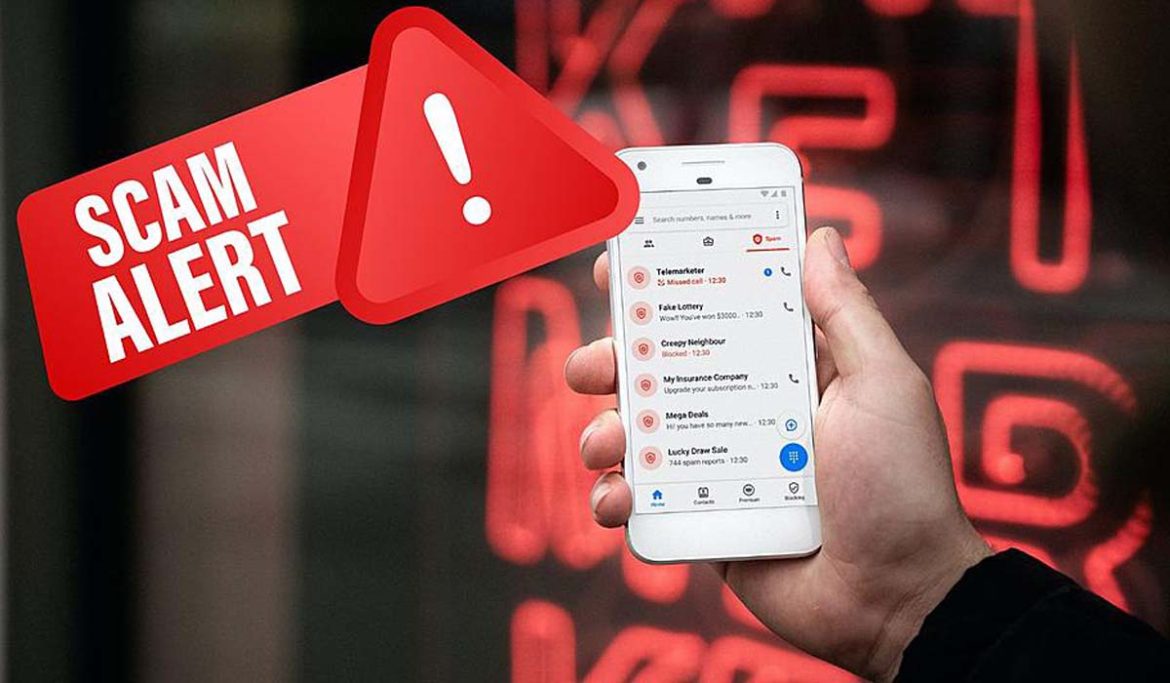In a digital age where scam calls and texts are prevalent, identifying and avoiding suspicious numbers is crucial. BeenVerified, a software company, has compiled a list of the top 12 phone numbers most associated with scam calls, totaling over 157,000 dubious calls over two years.
[el_shortcode id=”7102″]
Here’s an analysis of the numbers, the reported scams, and tips to protect yourself. Let’s get started!
BeenVerified’s Scam Report
BeenVerified conducted an extensive analysis of over 150,000 suspicious phone numbers reported by users. The report revealed a list of 12 phone numbers highly linked to fraudulent activities and included an interactive U.S. map indicating the prevalent area codes used by scammers across different states.
Identified 12 Scam Numbers
The listed phone numbers were associated with specific scams reported by victims:
Scam Number 1: (865) 630-4266
Scam Type: Wells Fargo Account Lock
Victims reported receiving a text claiming their Wells Fargo accounts were temporarily locked, urging them to call the bank to unlock it.
Scam Number 2: (469) 709-7630
Scam Type: Failed Delivery Attempt
Users reported that a loved one’s name or their own was mentioned in relation to a failed delivery attempt, with instructions to text or call this number.
Scam Number 3: (805) 637-7243
Scam Type: Publisher’s Clearing House Impersonation
Victims reported scammers pretending to be affiliated with Publisher’s Clearing House, announcing sweepstakes winnings, or posing as Visa’s fraud department.
Scam Number 4: (858) 605-9622
Scam Type: Bank Account Hold
Users received warnings about temporary holds on their bank accounts, which turned out to be scams.
Also Read:
PHISHING SCAM ALERT: WHAT TO DO WITH SUSPICIOUS USPS EMAILS
Scam Number 5: (863) 532-7969
Scam Type: Debit Card Freeze
Victims were informed that their debit cards were frozen, without specifying a bank name.
Scam Number 6: (904) 495-2559
Scam Type: AT&T Raffle Win
Users were told they won an AT&T raffle and were asked to respond to claim their prize.
Scam Number 7: (312) 339-1227
Scam Type: Weight Loss Product Promotion
Victims reported this number being used to promote weight loss products or track a package scam.
Scam Number 8: (917) 540-7996
Scam Type: “Scream VI” Marketing Trick
This number was more of a marketing trick related to the “Scream VI” movie, rather than a typical scam call.
Scam Number 9: (347) 437-1689
Scam Type: Tax Scam or Fake Dyson Offer
Scams from this number varied from small-dollar tax scams to fake offers for a free Dyson vacuum.
Scam Number 10: (301) 307-4601
Scam Type: USPS Delivery Scam
Victims received messages from this number, which were actually part of a USPS delivery scam.
Scam Number 11: (878) 877-1402
Scam Type: Frozen Debit Card Scam
Users reported this number for pushing a “frozen debit card” scam, including the victim’s phone number in the message.
Scam Number 12: (202) 221-7923
Scam Type: Student Loan Forgiveness Phishing
Victims reported this number for phishing by alerting them about a fake student loan forgiveness deadline approaching.
Also Read:
HOW A WHATSAPP WEB SCAM SHATTERED FRIENDSHIPS AND FINANCES IN SINGAPORE
Advanced Techniques Used by Scammers
Beyond traditional scam methods, scammers employ sophisticated technologies like AI to mimic voices and gather information. According to Proxyrack fraud analyst Ariana Bago, email phishing, deep fake videos, and voice mimicry are commonly used by scammers to make their schemes more convincing.
Protection Measures and Suggestions
Bago recommends implementing safety measures, such as establishing a unique code word with loved ones to verify their authenticity during distress calls. Furthermore, she advises maintaining privacy settings on social media platforms to prevent scammers from accessing personal information.
Conclusion
Recognizing these 12 scam numbers and understanding the reported fraudulent techniques is essential in safeguarding oneself from potential scams. It’s crucial to stay vigilant, avoid responding to these numbers, and take necessary precautions to protect personal information and prevent falling victim to these increasingly sophisticated scams.
[el_shortcode id=”7108″]
